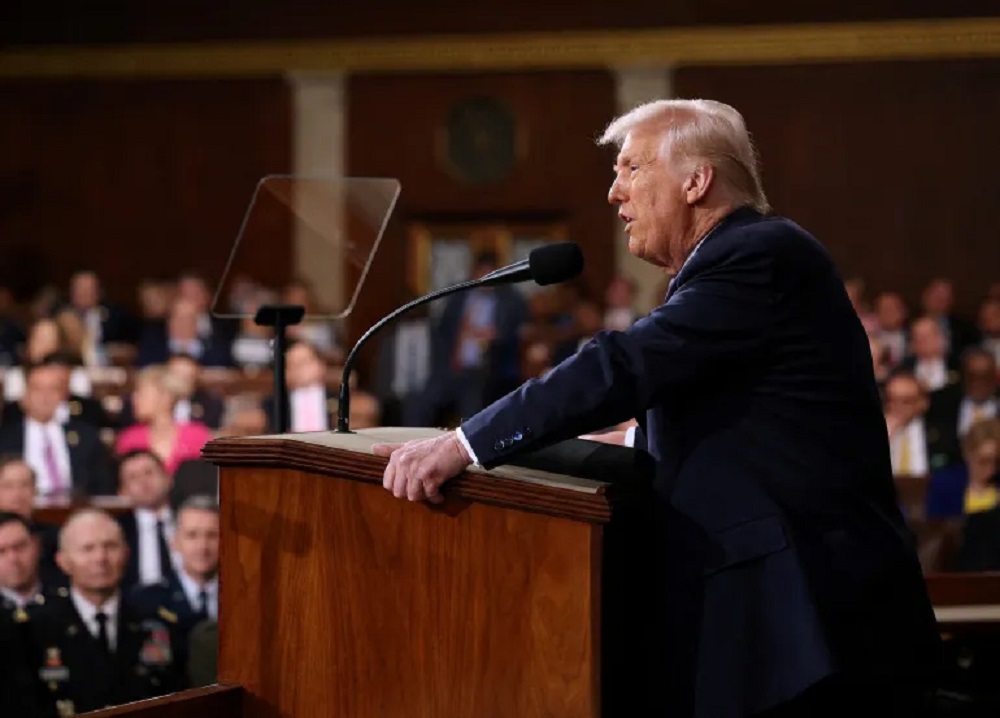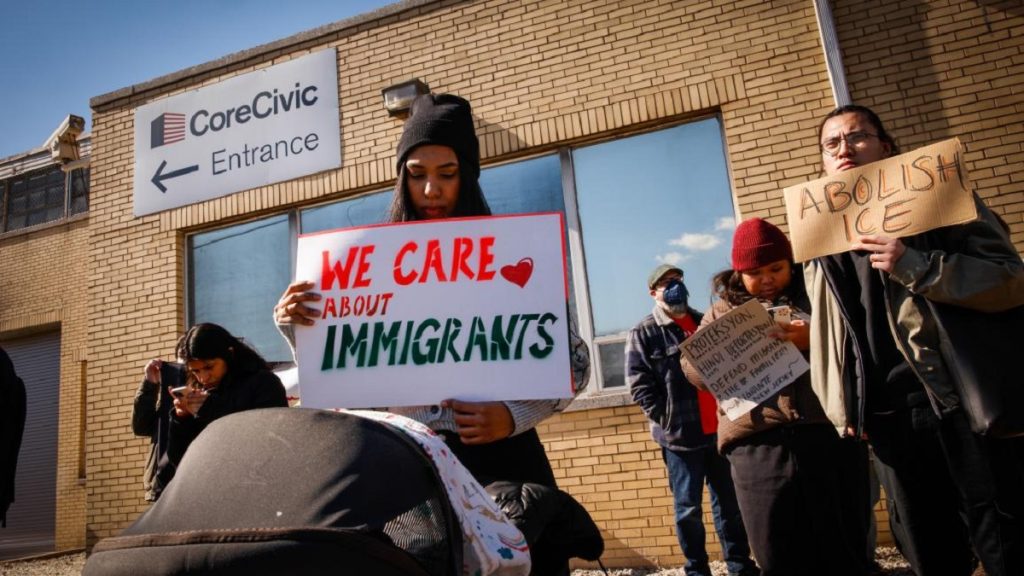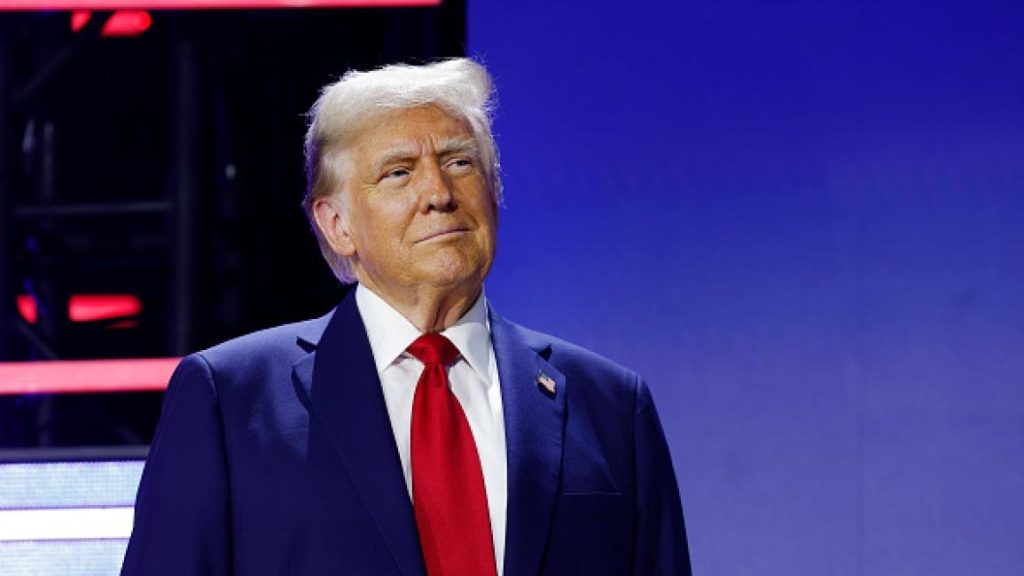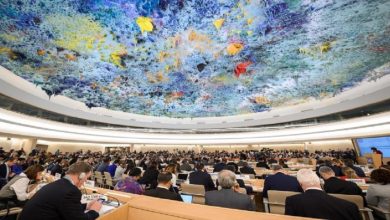Trump Resumes Travel Ban on Muslims: Revoking Visas and Expanding Restrictions
The U.S. President’s executive order reinstates the travel ban targeting Muslim-majority countries and revises visa vetting procedures.

Watan-Former U.S. President Donald Trump has reinstated the travel ban policy from his first term (2017–2021), revoking visas for Muslims, including some individuals already in the country. A U.S. source revealed that several U.S. embassies have informed visa holders of the decision and instructed them to attend an interview at the embassy.
The source linked the decision to revoke visas retroactively to Trump’s upcoming ban on Muslims from certain countries, which is expected to be announced in the coming days. This move falls under the executive order issued by Trump on January 20, titled “Protecting the United States from Foreign Terrorists and Other Threats to National Security and Public Safety,” which sets new rules for re-examining individuals seeking U.S. visas. It also requires relevant ministries and agencies to scrutinize and review individuals already in the U.S. since the beginning of President Joe Biden’s tenure (January 20, 2021), particularly foreigners from regions and countries with security risks.
A rights source revealed that a number of Libyan students, who recently obtained study visas for the U.S., were notified via email that their visas were revoked and were instructed to visit the U.S. embassy in Tunisia (as there is no embassy in Libya) for an interview. The source indicated that the retroactive visa revocation also applies to students already in the U.S., effectively canceling their stay. Libya is confirmed to be among the countries affected by the travel ban.

Executive Order Aims to Revoke Muslim Visas
The executive order issued by Trump on his inauguration day indicates that individuals from countries previously affected by the Muslim travel ban during his first term, including Libya, Iran, Sudan, Syria, Yemen, Somalia, North Korea, Cuba, and Venezuela, will likely be targeted. The order mandates a review of citizens from these countries who entered or were allowed to enter the U.S. since January 20, 2021, with immediate steps to deport them if any relevant information is found regarding their actions or activities since their acceptance or entry into the country.
Trump’s order also calls for a review of all individuals who entered the U.S. during Biden’s presidency and the return to the vetting procedures that were in place during Trump’s first term, which were rescinded by Biden. This led to the travel ban on Muslims from predominantly Muslim countries. The order specifically targets those who come from countries where visa issuance processes have been deemed inadequate.
The executive order further specifies that the U.S. must ensure that foreigners accepted into the country, or those already in the U.S., do not harbor hostile views toward American citizens, culture, government, institutions, or foundational principles, nor support foreign terrorists or other national security threats.
The executive order also calls for recommendations on necessary actions to protect the American people from foreign nationals who undermine or seek to undermine their constitutional rights, including freedom of speech and free exercise of religion, and those who promote sectarian violence or aim to overthrow or replace American culture.

Countries on the List and Expected Impact
The executive order provides 60 days to identify countries with significant deficiencies in visa vetting processes, potentially leading to partial or full suspension of their citizens’ entry into the U.S. According to leaks, Trump is expected to release a “Red List” in the coming days, which will likely include most or all of the countries from the first version of the travel ban, such as Iran, Libya, Yemen, Sudan, Somalia, Syria, as well as Cuba, Venezuela, North Korea, and Afghanistan.
Afghans Urged to Return to the U.S.
Recent organizations, such as the Council on American-Islamic Relations (CAIR) and other groups assisting Afghan refugees, have urged Afghans holding valid visas and currently outside the U.S. to return immediately, as a retroactive visa revocation could be issued within days. CAIR has also called on the Trump administration to reconsider plans for a new blanket travel ban on predominantly Muslim countries under the guise of national security protection.
Trump had pledged during his campaign and after his victory to renew the travel ban and expand the list of countries it affects, including ideological vetting to prevent those he described as “haters, dangerous extremists, bigots, and lunatics” from entering the U.S. Leaks suggest that the ban will include three lists: the “Red List,” which will likely include all the previous countries, including Afghanistan and possibly Pakistan; the “Orange List,” which will require further vetting for citizens seeking visas; and the “Yellow List,” which will allow a 60-day period to address deficiencies such as inadequate traveler information sharing or security failures in issuing passports.
This comes as around 200,000 Afghan nationals, who were approved for resettlement in the U.S. as refugees or with special immigrant visas for their work with the U.S. during the Afghanistan war, face an uncertain future, as well as approximately 51,000 Pakistanis.






